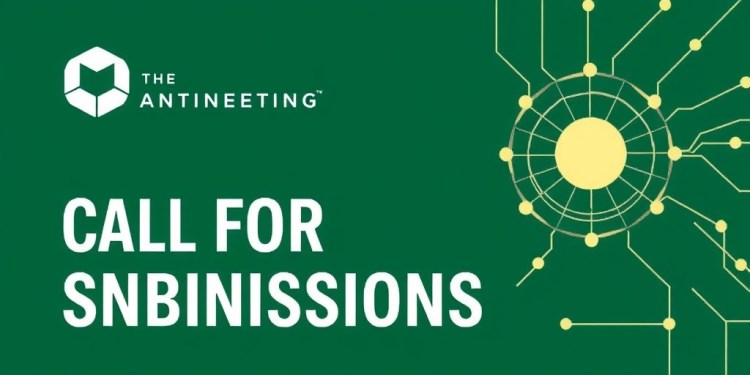Artificial intelligence (AI) has been at the forefront of transformative technologies across industries, ushering in a new paradigm in engineering. This evolution is not just a minor enhancement but rather a substantial leap towards the integration of AI into the core fabric of engineering practices. Through breakthroughs in fields including natural language processing, computer vision, and machine learning, the engineering landscape is being reshaped in ways previously thought to be the realm of science fiction. The capabilities of AI, driven by advancements in artificial neural networks and tools for predicting protein structures, emphasize the synergy between digital and physical realms, thus creating unprecedented opportunities for innovation.
The incorporation of large language models and general AI technologies is shifting how engineers approach complex problems. Engineers are leveraging intelligent agents and embodied intelligence to devise solutions that were unimaginable a decade ago. For instance, in intelligent manufacturing, AI systems optimize production lines, allowing for real-time adjustments that enhance efficiency and throughput. This transformation signifies a step towards achieving goals aimed at improving human quality of life through technological advancements, aligning with the vision of “Engineering for the benefit of humanity, technology for a better future.”
In light of the rapid AI evolution, a prominent journal in the engineering domain is now soliciting submissions from global scholars and experts. This initiative aims to highlight the transformative potential of AI methodologies and algorithms that address pressing engineering challenges. The emphasis is not merely on incremental improvements; instead, the journal seeks to promote significant advancements supported by empirical evidence of tangible impacts in real-world applications. This is an opportunity for researchers to contribute to the academic dialogue and to showcase their innovative approaches in various engineering sectors.
Submissions are encouraged across a spectrum of fields such as AI-enabled transportation, which is pivotal in developing smart traffic management solutions and autonomous vehicle systems. These technologies promise to redefine how we navigate cities, aiming to reduce congestion and improve overall mobility. Imagine a world where traffic flow is seamlessly managed by an AI system that analyzes real-time data to adapt traffic signals, making commutes smoother and more efficient.
Moreover, the application of AI in developing new materials has become a crucial frontier in engineering research. AI algorithms can analyze vast datasets to predict which compositions may yield materials with unprecedented characteristics. Such innovation has implications for various industries, including construction, aerospace, and electronics, leading to safer, lighter, and more durable materials that can significantly enhance product performance.
The energy sector is also undergoing a transformation, with AI enabling optimized power generation and distribution. Smart grids powered by AI technology can balance supply and demand, enhance grid resilience, and integrate renewable energy sources more effectively. These advancements are essential in the pursuit of sustainable energy solutions, ensuring that the future of energy is cleaner and more efficient.
The integration of AI in urban planning is giving rise to smart cities, where technology underpins infrastructure planning and resource management. AI-driven analytics can predict urban growth trends, allowing city planners to design more efficient public transport systems, green spaces, and utility networks. These enhancements enable cities to better accommodate growing populations while minimizing environmental impacts.
In agriculture, precision farming methods powered by AI are transforming food production. By analyzing agricultural data from various sources, AI can provide insights on optimizing crop yield and resource use. Machine learning models are capable of predicting weather patterns, soil health, and pest outbreaks, thus helping farmers make informed decisions that maximize their outputs sustainably.
Similarly, the health sector is experiencing a revolution due to AI applications, particularly in medical imaging and diagnostics. Advanced AI algorithms can detect anomalies in medical images with higher accuracy than traditional methods, speeding up diagnosis and personalizing treatment plans. This potential to enhance patient care underlines the ethical imperative of integrating AI technologies into healthcare practices.
As physics and engineering continue to intertwine, AI will play a vital role in redefining the boundaries of what is possible in both fields. The ongoing research that focuses on merging these domains often reveals insights into fundamental engineering problems, enabling scientists to develop more robust solutions. This progressive outlook fosters interdisciplinary collaboration within the scientific community, ultimately driving innovation and technological advancement.
In summary, the intersection of AI and engineering is a fertile ground for groundbreaking research and applications. The call for submissions to the journal emphasizes the importance of fresh perspectives that not only solve engineering challenges but also contribute significantly to societal well-being. Researchers are encouraged to push the envelope, setting the stage for a collaborative future in which engineering practices are further advanced through the deployment of AI technologies.
As this field continues to evolve, the engineering community remains poised to harness the transformative power of AI to address the shortcomings of the past and innovate solutions for the future. The overarching goal remains clear: to use technology to create a better world for all, ensuring that advancements in engineering serve the interests of humanity at large.
Subject of Research: The Transformative Potential of AI in Engineering
Article Title: The Revolution of Engineering Through Artificial Intelligence
News Publication Date: October 2023
Web References: Engineering Journal
References: Not applicable
Image Credits: Not applicable
Keywords
AI, engineering, intelligent manufacturing, smart cities, autonomous vehicles, AI-enabled energy solutions, precision agriculture, medical imaging, data analysis, sustainable development, technology for humanity, interdisciplinary collaboration.
Tags: AI innovations in engineeringartificial intelligence in manufacturingcomputer vision technology in engineeringembodied intelligence in engineeringengineering for human benefitfuture of AI in engineeringintelligent agents for problem-solvingmachine learning applications in engineeringnatural language processing for engineersneural networks in engineering solutionsoptimizing production lines with AItechnological advancements in engineering





